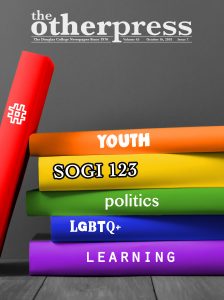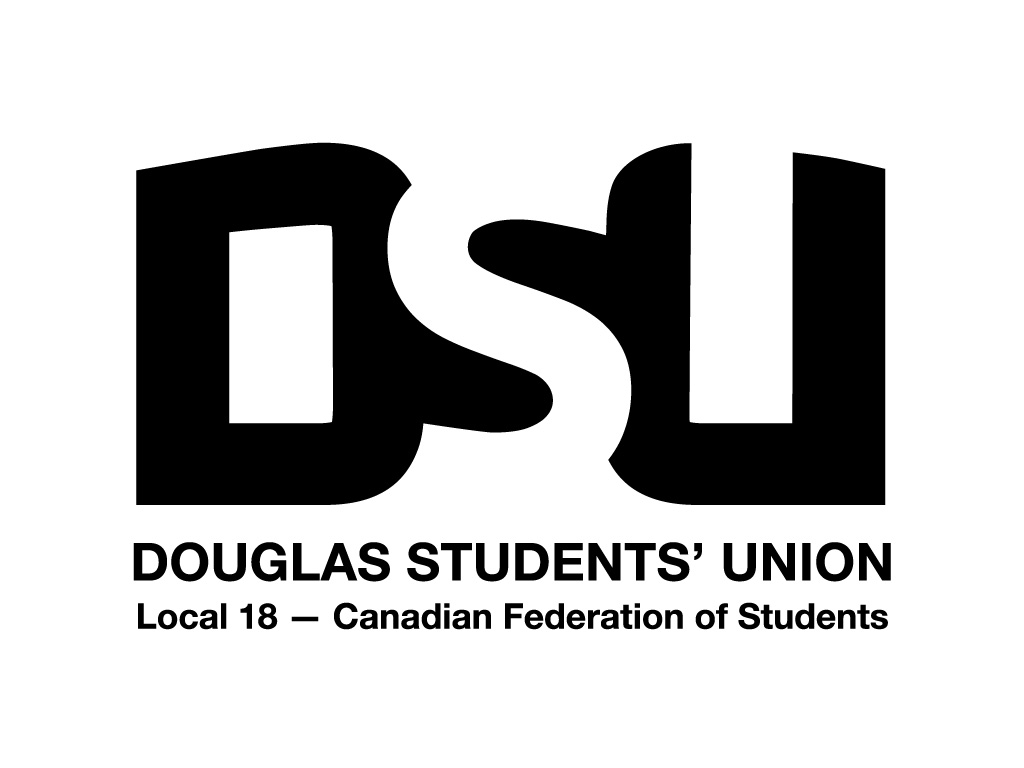What is it, and how will it affect the upcoming election?
By Bex Peterson, Editor-in-Chief
You may have seen an infographic doing the rounds on social media these past few weeks titled “Anti-Sogi (sic) Trustees”, with a list of municipalities and corresponding candidates for school trustee positions. Maybe you heard about the protest that took place at the BC Legislature in September with people campaigning both for and against including SOGI learning materials in BC classrooms. This of course begs the obvious question: What is SOGI, and why has it become such a hot-button issue for the upcoming election?
SOGI, shorthand for Sexual Orientation and Gender Identity, is a policy put forward by the Ministry of Education in a drive to create a more inclusive learning environment for LGBTQ+ students. It was developed after the BC Government passed a bill in 2016 to include “gender identity and expression” as protected rights under the Human Rights Code.
“SOGI 123 is a learning resource teachers may refer to as they might any online material,” said Laura Dixon, school trustee and chairperson of the Delta Board of Education, in an email interview with the Other Press. “Often it is mis-stated as ‘the curriculum’ which is not the case and [trustees] do not ‘implement’ SOGI 123.”
This is a common misconception, echoed by those who protest the policy. Many have accused the Ministry of “indoctrinating” children. One protestor at the BC Legislature, Courtney Strom, told the : “I believe it is a social engineering program of our government that is not based on truth or science.”
However, the purpose of the policy is simply to provide a framework that schools can follow to foster understanding.
“Any teacher in BC has the professional autonomy to choose the materials they will use to meet the curricular objectives,” said Dixon. “SOGI 123 was created to provide a potential resource for educators to aid in the design of inclusive policies, learning environments, and lesson plans.”
Dixon provided an outline of a Grade Four Physical Education lesson covering some basics, such as the difference between biological sex and gender identity and the way gender is socially constructed and influenced by media. The lesson also provides students with tools to identify and respond to discrimination.
“It highlights that everyone defines their own gender identity, and that this identity needs to be respected,” she said.
According to the CBC, 19 percent of current BC secondary school students identify as something other than strictly heterosexual—in practical terms, this translates to about one in five teens. Given that there is still stigma surrounding LGBTQ+ youth, the numbers could be higher when considering students who are uncomfortable with or still questioning their gender and sexuality. Despite these increasingly high numbers of LGBTQ+ youth, however, non-heterosexual teens still experience mental health troubles—especially depression and suicide ideation—at higher rates than their heterosexual counterparts. According to a 2011 report on LGBTQ+ youth in Ontario, Every class in every school: The first national climate survey on homophobia, biphobia, and transphobia in Canadian schools, “Studies have suggested that there is a link between bullying and suicide, and that there is a disproportionately high rate of suicide attempts and suicidal thinking among LGBT students.” With this being the case, it would surely make sense to try to bridge gaps in understanding to foster a healthier environment for LGBTQ+ teens.
“The topic of SOGI within BC curriculum is designed to keep an at-risk and vulnerable group of students safe, to create welcoming and inclusive schools, and to eliminate discrimination so students can focus on learning,” said Dixon. “It does not tell a student that their parent’s values are wrong, it simply says that we treat everyone with dignity and respect.”
The topic of SOGI has become a contentious one coming into the 2018 municipal elections. Just this past week, a schoolboard candidate on the Vancouver 1st slate, Tony Dong, left the party and decided to run as an independent after the slate’s mayoral candidate Fred Harding denounced SOGI in an online video.
According to the Georgia Straight Dong, who self-identifies as “middle class, right-winged, and conservative-minded”, supports the policy and SOGI 123 resources provided.
“Despite my political leanings, I find that the recent videos published by the Vancouver 1st party and leadership with [an] anti-SOGI stance are wholly inconsistent with my views,” said Dong in a statement to the Georgia Straight. “I believe that it is a much-needed resource for a historically marginalised and vulnerable population. […] To put it plainly, there has been a rather savage history of discrimination against the LGBTQ+ community and I will not stand with a party who does not see a priority in ameliorating it and supporting inclusive policies aimed at furthering human rights obligations.”
Not every candidate shares Dong’s views—though in Delta, it seems trustees and candidates across the board support SOGI policy and resources.
“I am so pleased to say that in Delta we have strong support for our approach to Sexual Orientation and Gender Identity policy, procedure, and implementation,” said Dixon. “We struck a student-led, educator-facilitated committee to design our procedure with their own lived experience in mind and to make recommendations. […] Additionally, we have fully supported GSAs in every high school and extensive training of all staff.”
Whether a school board trustee candidate supports SOGI or is “anti-SOGI”, however, they would not have the power to block the teaching of SOGI materials in schools in their district.
“Trustees cannot change the Canadian Charter of Rights and Freedoms, nor step around the Canadian Human Rights Act or ignore the Education Minister’s direction,” said Dixon. “In order to take office, [trustees] must take an Oath of Office to uphold the School Act and will likely have to agree to District Codes of Conduct to act in the best interests of all students. Trustees who try to block the teaching of the curriculum around SOGI-related content risk being legally challenged for infringing on human rights. Most concerning is that they put student safety and wellbeing at risk. Further, they fail to focus on fulfilling their obligation to ensure student success.”
With the election coming up quickly on October 20, it’s worth looking into your local candidates to see where they stand on SOGI. In the meantime, it’s certainly encouraging to see so many candidates in favour of supporting inclusive policy measures for LGBTQ+ youth in BC.
“If a trustee is accountable for student success,” said Dixon, “that means they are accountable for the safety and wellbeing of all.”




